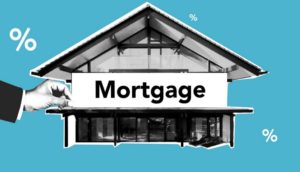Mortgage loans allow you to purchase a home or refinance your mortgage by borrowing money from a lender. They are typically given for up to 30 years and can be obtained with a low down payment, as little as 3% of the property’s value. Many different mortgages are available, including conventional loans, FHA loans, VA loans, and jumbo mortgages.
Jumbo mortgages have higher interest rates but require less documentation than other mortgage loan programs.
Mortgage Rates and Terms
 Mortgage rates and terms can vary greatly depending on the lender, so it’s essential to do your research before committing. The interest rate is just one factor in your mortgage loan, so make sure you also consider the term of the loan, origination fees, and other associated costs. Various mortgage loan products are available, each with its own set of benefits and drawbacks.
Mortgage rates and terms can vary greatly depending on the lender, so it’s essential to do your research before committing. The interest rate is just one factor in your mortgage loan, so make sure you also consider the term of the loan, origination fees, and other associated costs. Various mortgage loan products are available, each with its own set of benefits and drawbacks.
Fixed-rate mortgages offer stability and predictability, while adjustable-rate mortgages can be more affordable in the short term but may have higher interest rates down the road.
Credit Score
Your credit score is one of the most important things determining whether or not you are approved for a mortgage loan. Your credit score is calculated based on various factors, including how much debt you have outstanding combined with your ability to pay off those debts in full and on time each month.
There are many different ways that a lender can calculate your credit score. However, the most common ones are the FICO score and VantageScore. If you have excellent credit, that will undoubtedly help your case when applying for a mortgage loan. It means that you can get approved more quickly and at better interest rates than someone with poor or mediocre credit history would be able to do so.
Process of Mortgage Loan Application
 When you are ready to apply for a mortgage loan, you will need to provide information about your income, assets, and debts. The lender will use this information to calculate your debt-to-income ratio. This is a measure of how much debt you have compared to your income. The higher your debt-to-income ratio, the more risk you pose to the lender. This is because a high debt-to-income ratio means you may be unable to make your monthly mortgage payments if interest rates rise or your income falls.
When you are ready to apply for a mortgage loan, you will need to provide information about your income, assets, and debts. The lender will use this information to calculate your debt-to-income ratio. This is a measure of how much debt you have compared to your income. The higher your debt-to-income ratio, the more risk you pose to the lender. This is because a high debt-to-income ratio means you may be unable to make your monthly mortgage payments if interest rates rise or your income falls.
Mortgage loans can be a complicated and stressful process, but we’re here to help. We want you to feel confident in your financial decisions and avoid the pitfalls that mortgage lenders may set for you when trying to get financed. To learn more about our services or how we could work with you on getting approved for a loan, contact us today!


